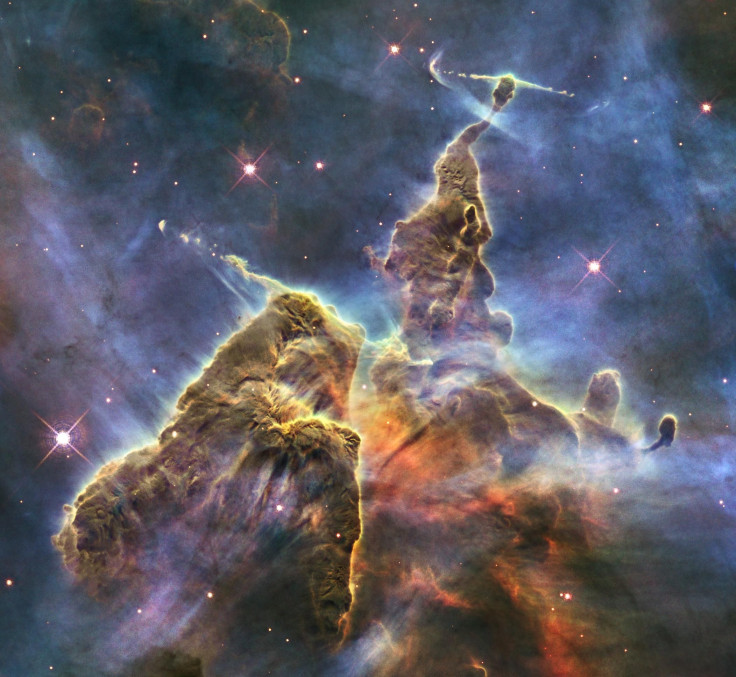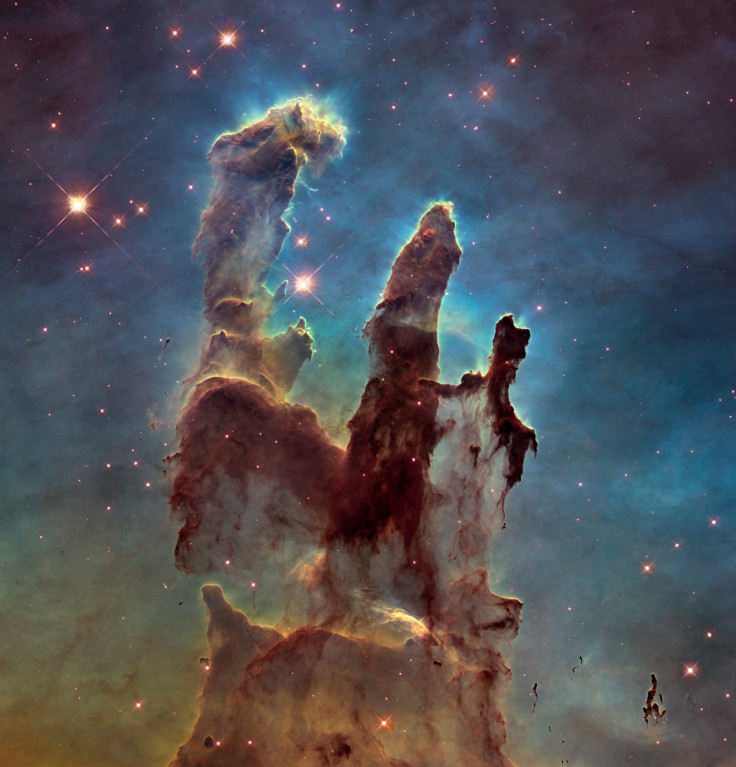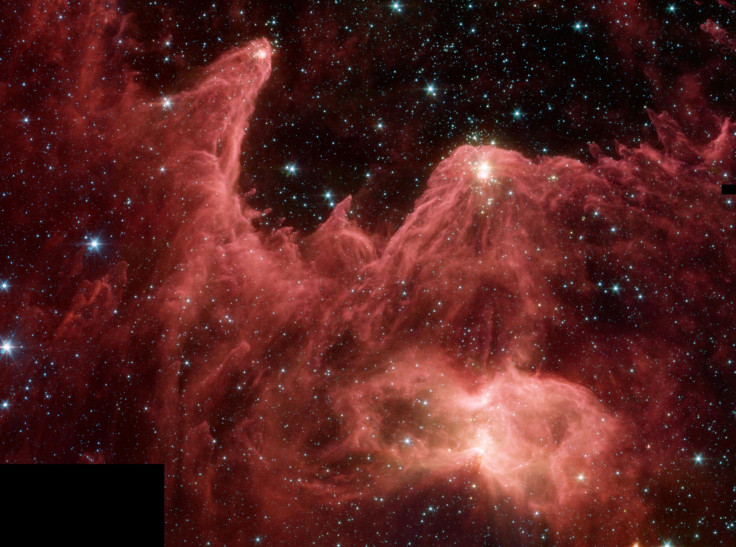4 Nebula Photos From NASA That Look Like Creepy Alien Cities

Space has a lot of spherical shapes because of the way matter settles under the pull of gravity, but the universe is not all globes. Some of the places we can see the most unusual shapes is in a nebula, a large cloud of dust and gas where stars often form as material condenses.
An Alien Leader’s Royal Castle
NASA’s Hubble Space Telescope captured this image that the space agency refers to as “mystic mountain” though some may say it looks more like the towers of an alien castle. According to NASA, it is a “three-light-year-tall pillar of gas and dust” within Carina Nebula. It is 7,500 light-years away from Earth and is a hotbed of star-forming activity.
One of the things Carina Nebula is most known for is Eta Carinae, a system of two stars that is one of the biggest and brightest in the galaxy.
The Extraterrestrial Apartment Complex

The pillars of gas and dust in the Eagle Nebula are about 7,000 light-years away from our solar system, living the in constellation Serpens. The Hubble Space Telescope took this photo of the nebula, which NASA has described as the towers sticking out from a larger cloud “like stalagmites from the floor of a cavern.”
The Eagle Nebula is also known as Messier 16 — or M16 for short. Its pillars have been nicknamed the “Pillars of Creation.” They are between 4 and 5 light-years across.
A Biodome In Space

The Bubble Nebula is an example of a rounder star nursery. This photo taken by the Hubble Space Telescope shows the nebula, which is more than 7,000 light-years away and hangs out in the constellation Cassiopeia. The bubble itself is about 7 light-years across and is “an enormous bubble being blown into space by a super-hot, massive star,” according to NASA.
The Mountain City

This star nursery has been called the Soul Nebula. Like the Bubble Nebula, it is located in Cassiopeia. NASA compares the pieces of the Soul Nebula, seen in this photo from the Spitzer Space Telescope, to “mountains” and says they are about 50 light-years across. Radiation and wind coming off nearby powerful stars molded the nebula into this shape.
© Copyright IBTimes 2024. All rights reserved.




















